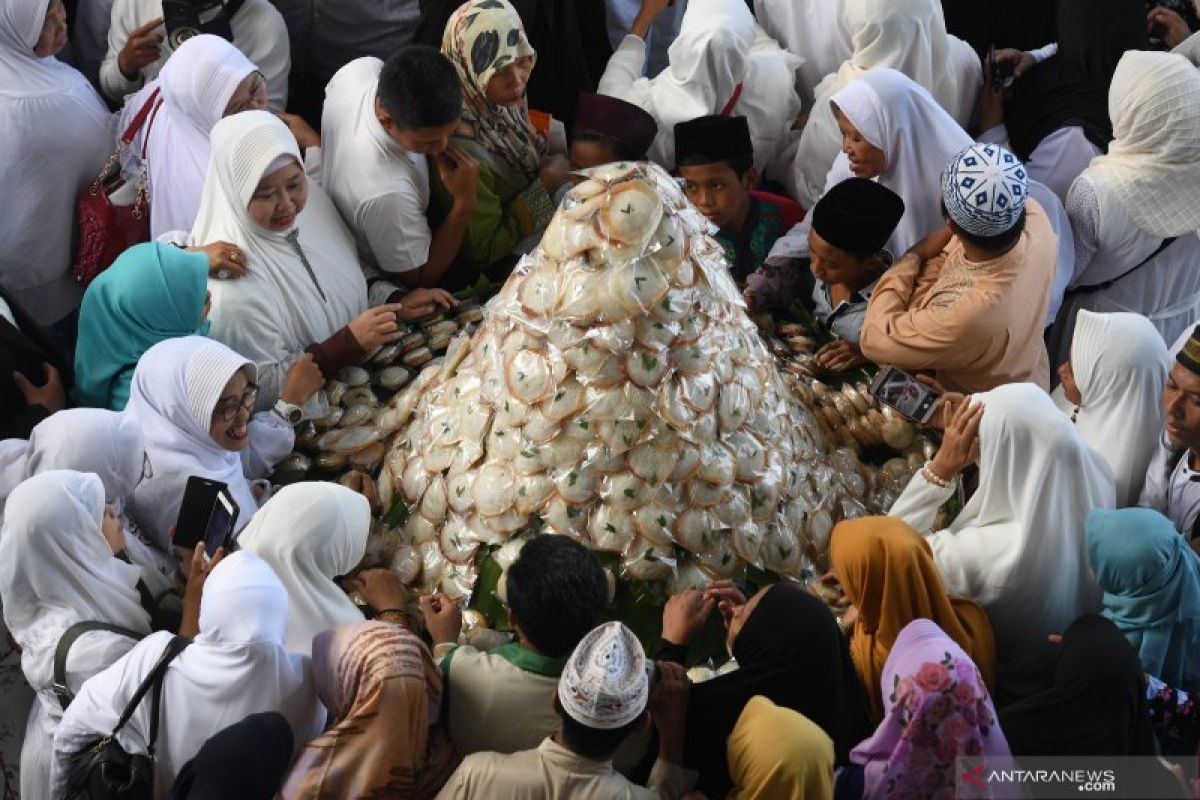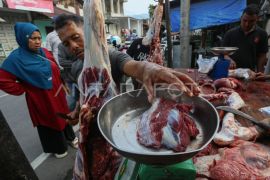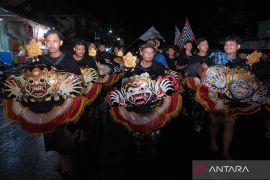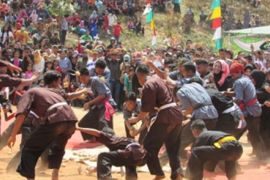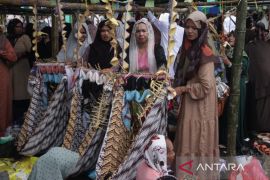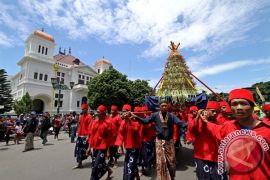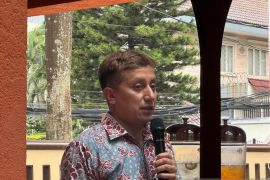The cultural and traditional opulence in the run-up to Ramadhan that has far from dimmed in this era of progress and development should be tapped as an attractive potential to boost tourism.
As is followed in the city of Yogyakarta, people in several regions continue to adhere to the routine customs, cultures, and traditions observed before entering the fasting month, such as ruwahan, which is offering prayers for the deceased. At times, people also bring along an array of food items that hold specific philosophical significance.
One such food offering that frequently makes an appearance prior to Ramadan is apem. Residents also adhere to the tradition of preparing apem cakes termed as "apeman."
Along with cooking the apples in bulk, they are then displayed or distributed to other residents. The Javanese people follow the tradition that aims to elicit a sense of forgiveness for one another, as apem symbolizes pardon.
Sosromenduran is one such village that follows the tradition of "apeman" on a regular basis for several days prior to entering the month of Ramadan. Villagers come together to prepare apem cakes along Jalan Sosromenduran.
The public and tourists then relish the several thousand apples, and Apem is also displayed around the village. Moreover, Sosromenduran Village is not located too far off from Malioboro Street considered to be the tourism hub in Yogyakarta City.
In addition to Soromenduran, the tradition of "apeman" was practiced in Annual Village. Residents also make preparations and package the event to their specific requirements.
Some 1,500 apples that the residents cooked are displayed around the village, and residents participating in the parade also don special traditional attire of Yogyakarta, with some apem bearers even dressing up as soldiers.
This tradition has been regularly held in recent years. In addition to the cultural significance and ushering in Ramadhan, this activity can serve as a means to accustom citizens to their roots and draw tourists to visit, Suraharti's Annual Village Head remarked.
Around the Ngayogyakarta Hadiningrat Palace, the tradition of "apeman" is still followed, such as the one held in "Ndalem Benawan" that is in the Kadipaten Village, Kraton District. Ndalem Benawan was the former residence of GBPH Benowo, the 36th son of Sri Sultan HB VIII from BRAy Retnohadiningrum, and is currently occupied by heirs.
Deputy Mayor of Yogyakarta Heroe Poerwadi highlighted the need to maintain cultural and traditional activities while also extending his gratitude to all those who have preserved the culture in Yogyakarta.
However, Poerwadi is optimistic that such traditions and culture would not only be enjoyed by the local residents but also be packaged in a more attractive way and improvised, so that citizens can derive benefits in terms of the social, cultural, and economic aspects.
The high fervor and enthusiasm to hold the activities in the run-up to Ramadan does not only stop at Ruwahan or apeman, but the residents also engage in cleaning up or caring for the environment, better known as merti kampung.
The residents of Karangwaru Urban Village, Yogyakarta City, also organized a cultural procession for the hamlet for the maiden time this year. The carnival was organized in the last week of April, starting from the Karangwaru Field and crossing Jalan Magelang that became one of the main roads in the city of Yogyakarta.
The activity featured cultural vigor, such as the bregodo of the Keraton Yogyakarta army, lion dance, and mountains of vegetables, interpreted as a form of gratitude to the God Almighty.
Poerwadi believes this activity is a viable agenda and is expected to be organized regularly before the fasting month. This activity will further enliven the spirit of citizens to work towards continued improvement, so that Karangwaru will witness continued growth.
He believes that the tradition and culture followed in the community was the capital to unite all strata of society for which it should be maintained. Harmony and unity among citizens can be maintained and fostered optimally.
Tourism potential
The Yogyakarta City Tourism Office believes that the community's art, culture, and traditions hold vast tourism potential that should be persistently tapped, polished, and encouraged to gain greater popularity among tourists to visit.
Currently, in addition to visiting various tourist attractions, travelers are keen to have interesting experiences and create memories during their visit to Yogyakarta. This can be achieved if tourists are able to enjoy attractive tourism treats, Head of the Tourist Attraction and Creative Economy of the Yogyakarta City Tourism Office Edi Sugiharto remarked.
Particularly for the tradition and culture followed before Ramadan, from "Ruwahan" to "Apeman" and "Merti kampung," Sugiharto noted that the activities held significant potential to be designated as tourist attractions.
He called on the need to synergize this potential with tour packages of tourism villages, and if promoted properly, it will certainly draw tourists.
Sugiharto believes that to package or incorporate it into tourism packages in tourist villages, several aspects should be taken into account, specifically packaging activities to make them appealing though without overlooking the elements of indigenous culture.
For instance, for people fond of puppet shows, the Wayang orang performances can be held as part of the cultural activities to be packaged as tourist attractions. However, it is nearly impossible to depict an entire story that can drag on for hours. The key is to showcase certain interesting plots to keep the tourists glued.
On the similar lines, he noted that the tradition of lifting ahead of Ramadan too can be packaged to serve as a tourist attraction.
Currently, the Yogyakarta City Tourism Office is urging all tourist villages to accrue relevant information and maintain a record of all routine activities organized by tourist villages, including cultural attractions in the village.
Editor: Suharto
Copyright © ANTARA 2019
